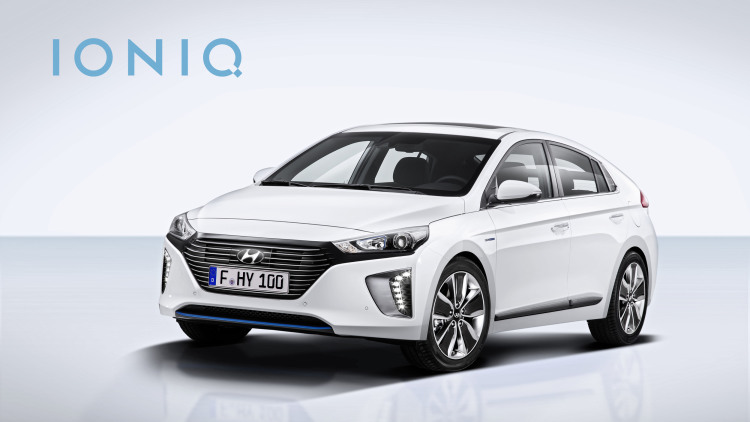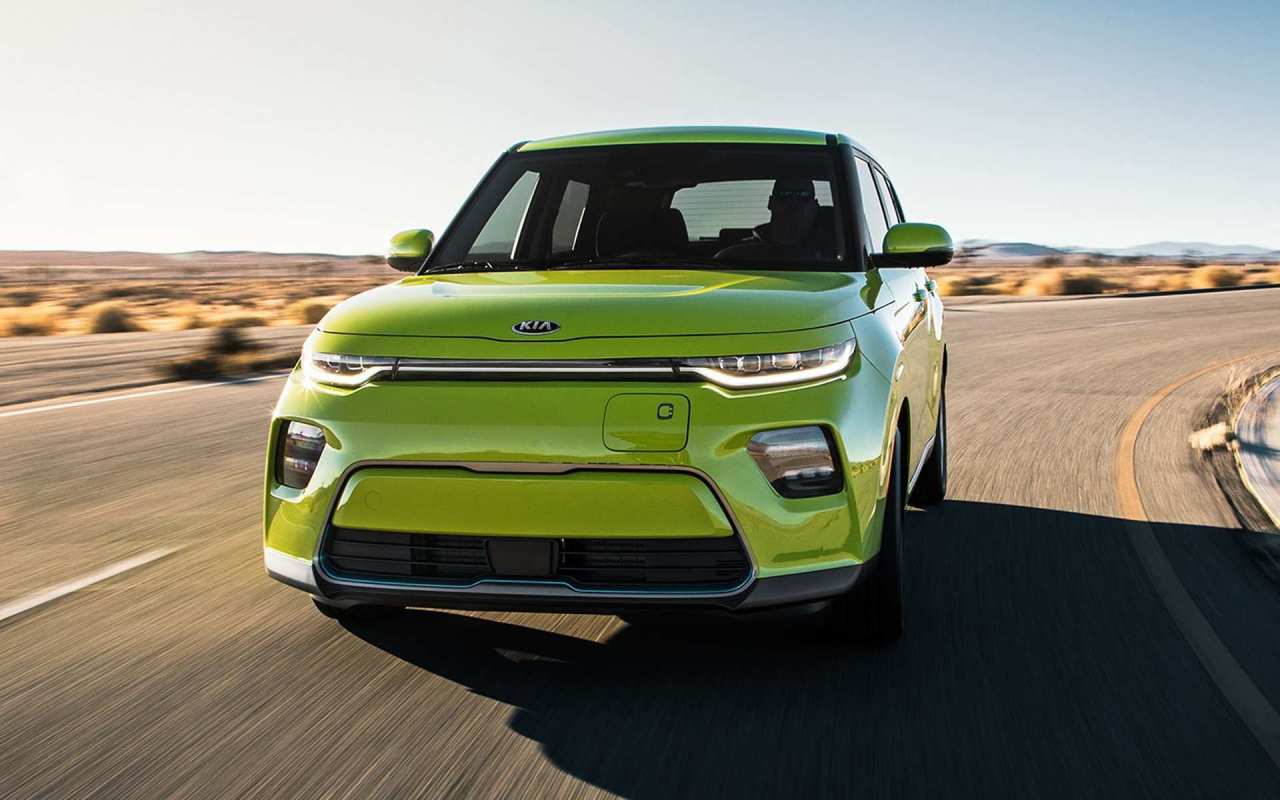South Korean exports of environment-friendly cars, such as hybrid and electric vehicles, soared over the seven years ending last year as global demand shifted away from combustion-engine cars, industry data showed Tuesday.
The data from the Korea Automobile Manufacturer Association showed that from 2012 to 2018, the country’s automotive exports fell by an annual average of 4.2 percent, but exports of eco-friendly cars rose by an average of 33.1 percent per year.
A total of 196,000 eco-friendly vehicles were exported last year, accounting for about 8 percent of the country’s overall vehicle exports. In 2012, only 35,000 eco-friendly cars were exported.
KAMA attributed the trend to the efforts of Korean automakers to diversify their eco-friendly vehicle lineups to meet increasing global consumer demand for eco-friendly cars.
Last year, France and Norway said they would phase out conventional cars such as diesel cars by 2025 and 2040, respectively. Cities including Madrid have also said they plan to ban cars with combustion engines. As a result, global demand for eco-friendly alternatives grew by an average of 21.2 percent annually from 2014 to 2018.
Over the same seven-year period, hybrid EVs accounted for 80.3 percent of Korea’s eco-friendly car exports, backed by the popularity of plug-in hybrid models, which feature a combustion engine and an electric motor that runs on power supplied by a battery pack. Other EVs, including fuel cell electric vehicles, made up the rest.
According to KAMA, Korea exported 90 percent of its eco-friendly cars to North America, the next most popular export destinations being Israel, the United Kingdom, Germany and Spain.
Many countries offer significant benefits for eco-friendly car owners -- in the US, they are eligible for tax deductions of up to $7,500 and special discounts on tolls. In Israel, hybrid car purchasers get 25 percent off the vehicle sales tax.
KAMA also pinpointed local carmakers’ increased competitiveness in developing EVs as another reason behind the rise in eco-friendly exports.
The data from the Korea Automobile Manufacturer Association showed that from 2012 to 2018, the country’s automotive exports fell by an annual average of 4.2 percent, but exports of eco-friendly cars rose by an average of 33.1 percent per year.
A total of 196,000 eco-friendly vehicles were exported last year, accounting for about 8 percent of the country’s overall vehicle exports. In 2012, only 35,000 eco-friendly cars were exported.
KAMA attributed the trend to the efforts of Korean automakers to diversify their eco-friendly vehicle lineups to meet increasing global consumer demand for eco-friendly cars.
Last year, France and Norway said they would phase out conventional cars such as diesel cars by 2025 and 2040, respectively. Cities including Madrid have also said they plan to ban cars with combustion engines. As a result, global demand for eco-friendly alternatives grew by an average of 21.2 percent annually from 2014 to 2018.
Over the same seven-year period, hybrid EVs accounted for 80.3 percent of Korea’s eco-friendly car exports, backed by the popularity of plug-in hybrid models, which feature a combustion engine and an electric motor that runs on power supplied by a battery pack. Other EVs, including fuel cell electric vehicles, made up the rest.
According to KAMA, Korea exported 90 percent of its eco-friendly cars to North America, the next most popular export destinations being Israel, the United Kingdom, Germany and Spain.
Many countries offer significant benefits for eco-friendly car owners -- in the US, they are eligible for tax deductions of up to $7,500 and special discounts on tolls. In Israel, hybrid car purchasers get 25 percent off the vehicle sales tax.
KAMA also pinpointed local carmakers’ increased competitiveness in developing EVs as another reason behind the rise in eco-friendly exports.

Hyundai Motor, for example, has developed 14 eco-friendly models for export, including HEVs, EVs, FCEVs and PHEVs. It began exporting eco-friendly cars in 2010 with the Sonata HEV.
In 2017 and 2018, Hyundai’s EV Ioniq has gained recognition as the most fuel-efficient car on the US market.

Kia also exports EVs, including its compact crossover Soul EV, which has become popular since the automaker revamped its driving range so that it can go 380 kilometers on a single charge, from just 150 kilometers.
“Automotive industry researchers forecast that by 2030, eco-friendly cars will hold over 50 percent of global automotive sales. This means Korean automotive companies must expand and strengthen their eco-friendly car lineups and come up with strategic measures to target global markets,” said Jung Man-ki, chairman of KAMA.
By Kim Da-sol (ddd@heraldcorp.com)







![[Graphic News] More Koreans say they plan long-distance trips this year](http://res.heraldm.com/phpwas/restmb_idxmake.php?idx=644&simg=/content/image/2024/04/17/20240417050828_0.gif&u=)
![[KH Explains] Hyundai's full hybrid edge to pay off amid slow transition to pure EVs](http://res.heraldm.com/phpwas/restmb_idxmake.php?idx=644&simg=/content/image/2024/04/18/20240418050645_0.jpg&u=20240419100350)






![[From the Scene] Monks, Buddhists hail return of remains of Buddhas](http://res.heraldm.com/phpwas/restmb_idxmake.php?idx=652&simg=/content/image/2024/04/19/20240419050617_0.jpg&u=20240419175937)

![[KH Explains] Hyundai's full hybrid edge to pay off amid slow transition to pure EVs](http://res.heraldm.com/phpwas/restmb_idxmake.php?idx=652&simg=/content/image/2024/04/18/20240418050645_0.jpg&u=20240419100350)

![[Today’s K-pop] Illit drops debut single remix](http://res.heraldm.com/phpwas/restmb_idxmake.php?idx=642&simg=/content/image/2024/04/19/20240419050612_0.jpg&u=)